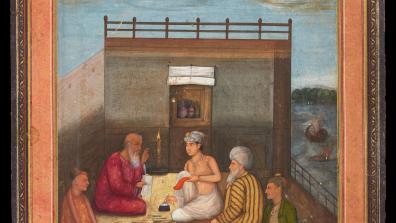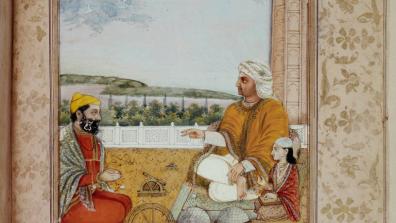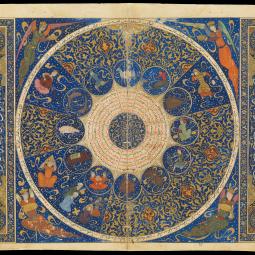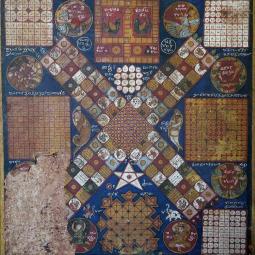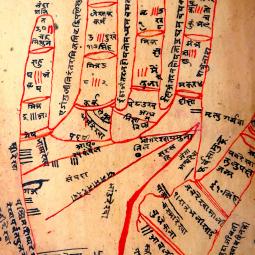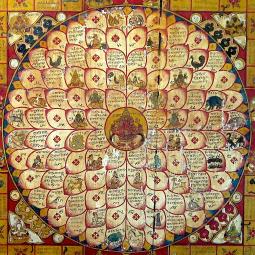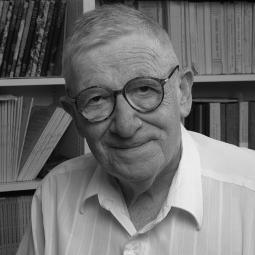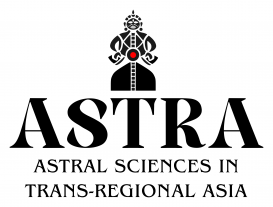
© Anuj Misra 2023
Astral Sciences in Trans-Regional Asia (ASTRA)
Gazing at the eternal celestial waltz, where stars and planets trace their paths across the night sky, evokes a wonder rivaled by few sights. While their mechanics might seem like a cold, precise choreography, history reveals that their journeys are imbued with the vibrant flames of human storytelling. Traveling through cultures and philosophies, the voyages of celestial bodies whisper tales across space and time. Consequently, understanding the movement of the heavens requires engaging with both the scientific and humanistic stories of celestial motion in a cohesive and concurrent manner.
Launched in 2024, the Max Planck Research Group “Astral Sciences in Trans-Regional Asia” (ASTRA) takes a novel approach in investigating the history of astral knowledge in Asian discourses. Focusing on their creative transformations and cross-cultural movements, ASTRA moves beyond narrow definitions and embraces a wide range of astral practices—from mathematics and astronomy to divination and ritual inquiries, and even further—inextricably linked with religious beliefs, cultural narratives, and artistic expressions. By charting the movement of these practices across trade routes, scholarly networks, and oral traditions, ASTRA reveals the dynamic course of astral learning across different Asian societies.
Instead of confining itself to geographical boundaries, ASTRA adopts a “trans-regional” approach in understanding the circulation of astral knowledge in Asia. This means recognizing the historical fluidity of geopolitical borders, allowing ASTRA to explore the connections between the astral sciences practiced across vast swathes of the Eurasian continent. For example, consider the historical journey of astronomical table-texts, used in both sacred and secular practices, traveling through Mesopotamia, Central Asia, and South Asia showcasing the confluences of Islamicate and Sanskritic astronomical thinking. This expansive perspective is crucial for understanding how knowledge has traversed history, transcending regional and cultural limitations at all times. By taking a multifaceted, rather than single-centered, view, ASTRA reveals the complex dynamics of knowledge dissemination within and beyond specific scientific communities.
Reflecting this “trans-regional” approach, ASTRA delves into the thematic richness of Asian astral sciences through three key domains: Transmission, Translocation, and Transcreation. These domains, while interrelated and often overlapping, explore distinct mechanisms by which astral knowledge was communicated, transported, and integrated throughout history. It is important to note that this framework, though highly valuable, is neither exhaustive nor exclusive. New pathways of knowledge exchange and transformation may emerge as we further explore the complex landscape of the Astral Sciences in Trans-Regional Asia, embodying the true spirit of ASTRA’s ambition.
Thematic Domains
Research Projects
Working Groups
Events
ASTRA Colloquium
The 2025 ASTRA colloquium series brings together board game scholars working with primary sources in a variety of Asian languages and asks them to present their sources and discuss questions of context, structure, content, and language use.
High Gravity Talks
The High Gravity Talks series fosters interdisciplinary dialogue by bringing distinguished and world-renowned scholars to Berlin to deliver public lectures on topics relevant to the group’s research into Eurasian astral sciences.
News & Press
Multimedia
Our Stories
Publications
- Text boxes
- Related projects
- Related projects
- Text boxes
- Related projects
- News & Press
- Event Series
- Related projects
- About
- Event Series
- Research Projects
- Event Series
- Event Series
- Working Groups
- Related projects
- Events
- ASTRA Colloquium
- High Gravity Talks
- News & Press
- Multimedia
- Our Stories
- Publications
- Upcoming Project Events

